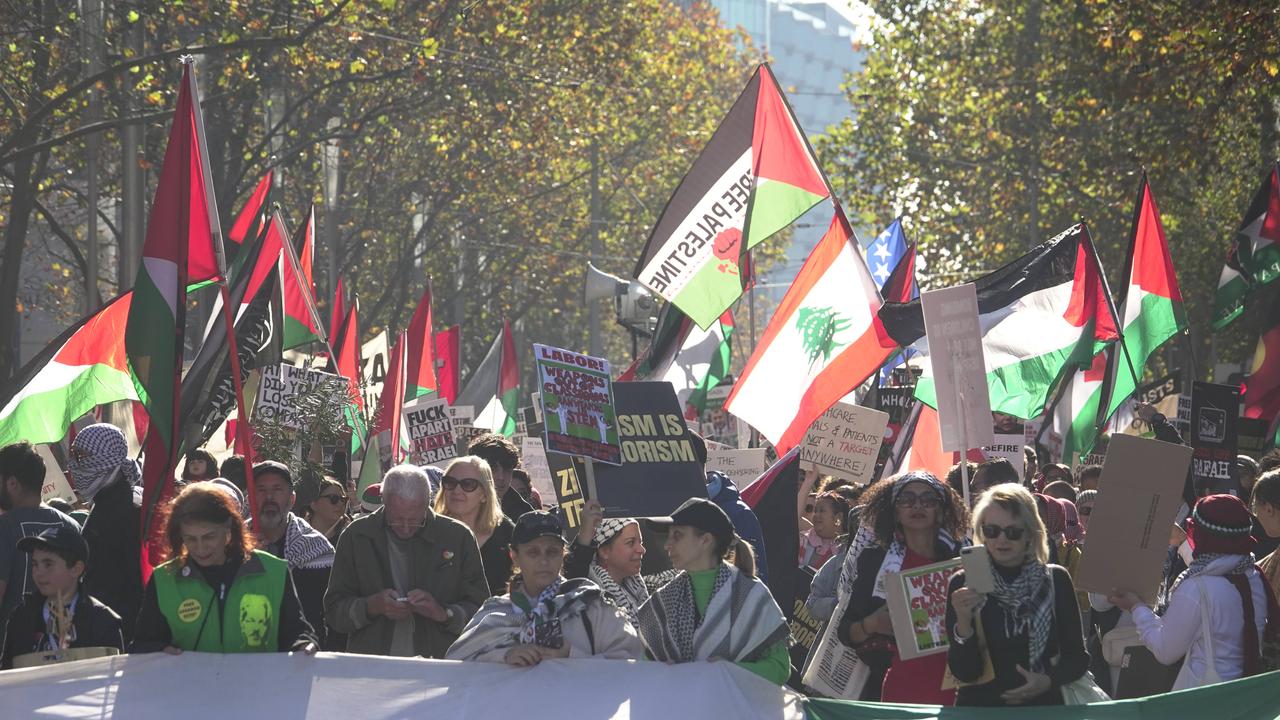
Australia's Parliament Resumes Amid Protests and Political Shifts
Australia's Parliament resumed on Tuesday for the first time since the center-left Labor Party secured one of the nation's largest majorities in the May elections. The day was largely ceremonial, but it also brought attention to ongoing global conflicts, particularly in the Middle East.
Hundreds of pro-Palestinian demonstrators gathered outside Parliament House, calling for the government to impose sanctions on Israel. This followed Australia's participation in a joint statement with 27 other countries, urging an immediate end to the war in Gaza. The demonstration highlighted growing public concern over the humanitarian crisis in the region.
Security measures were tightened during the session, as 15 demonstrators were prevented from entering the Senate’s public gallery while Attorney-General Sam Mostyn addressed lawmakers. However, Senator Mehreen Faruqi, deputy leader of the Australian Greens, made a silent protest by holding up a sign that read: "Gaza is starving, words won't feed them, sanction Israel." Her gesture underscored the frustration felt by many within the political sphere regarding the lack of stronger action from the government.
Australia has already imposed financial and travel restrictions on certain Israeli officials, including ministers Itamar Ben-Gvir and Bezalel Smotrich. However, no broader sanctions have been placed on the state of Israel itself, a point of contention among critics and advocates alike.
Joint Statement Sparks Debate
The joint statement issued by Australia and other nations sparked intense debate within the political landscape. Home Affairs Minister Tony Burke described the statement as the strongest ever from the government on the conflict in Gaza. He emphasized the importance of collective action, stating, "When you can make a statement together with so many other significant powers, then we're all hoping that there'll be something that will break this."
Burke added, "What we are watching on the other side of the world is indefensible. The hostages still need to be released, but the war needs to end." His comments reflected a growing sense of urgency among some members of the government.
However, not everyone shared this sentiment. Senior opposition lawmaker Jonathon Duniam called Australia's participation in the joint statement "alarming," arguing that the letter did not fully capture the complexity of the issue. "There is more to this issue than this letter betrays, and I think it is a sad turn of events for our government to have joined with other countries in signing this letter," he said.
Indigenous Ceremonies and Political Traditions
The opening of the 48th Parliament included Indigenous ceremonies, marking a significant shift in the traditional British Westminster-style proceedings. Prime Minister Anthony Albanese acknowledged the significance of these ceremonies, thanking the traditional owners of Canberra at a Welcome to Country event. He noted that such practices had been introduced by a Labor government in 2007, highlighting the party's commitment to reconciliation and respect for Indigenous leadership.
"In the 48th Parliament, we write the next chapter. Let us do it with the same sense of grace and courage that First Nations people show us with their leadership," Albanese stated, reinforcing the importance of inclusivity and cultural awareness in governance.
Largest Government Majority Since 1996
Labor's victory in the recent elections marked a historic moment, securing 94 seats in the 150-seat House of Representatives. This majority is the largest since Prime Minister John Howard's conservative coalition achieved the same number in 1996, when the lower house had only 148 seats. Howard remained in power for nearly 12 years, and Albanese is the first prime minister since then to lead a party to consecutive election victories after a period of political instability.
The main opposition, the Liberal Party, elected its first female leader, Sussan Ley, following one of the worst election results in the party's history. The conservatives hold 43 seats, while independent lawmakers and minor parties control 13. No single party holds a majority in the 76-seat Senate, with Labor holding 29 seats, the conservatives 27, and the Australian Greens 10.
Given this fragmented landscape, the government is likely to seek alliances with the conservatives or the Greens to pass legislation through the Senate, rather than engaging with multiple smaller parties and independents. This strategic approach reflects the challenges of governing in a multi-party system.
